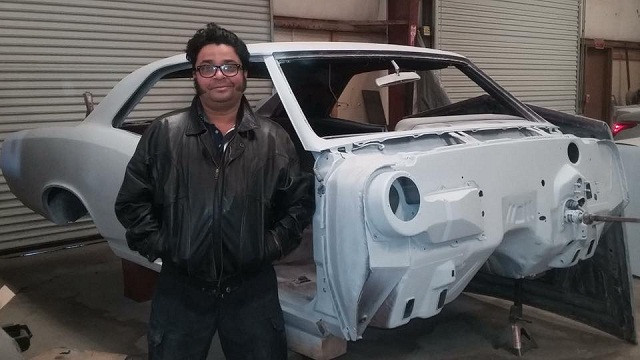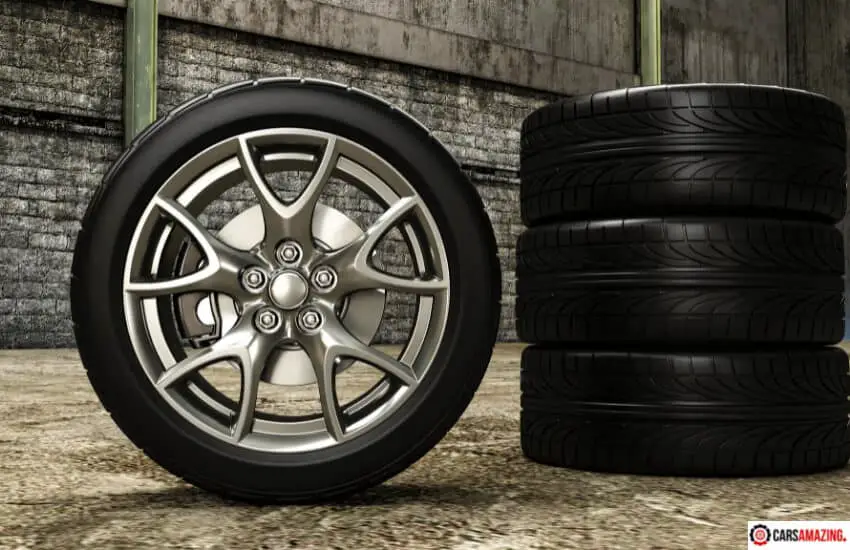Last Updated on February 1, 2023 by Leepu Da Maxim
Tread life expectancy is that tires last up to 3 years, six years max. The deeper the treads, the longer the tires will serve you. But, after driving 50,000 miles, you should be ready to change to a new set.
Key Takeaways
- Usually, tire tread life expectancy for passenger car tires is 50,000 to 80,000 miles
- The tire tread life expectancy for light truck tires is 40,000 to 70,000 miles
- The life expectancy of tire treads mostly depends on road conditions, quality, type of tires, driving habits, etc.
- The average lifespan of a tire is about 5-10 years
In this article, I will answer each of these questions:
- How Long Does Tire Last On Average?
- How Often Should You Replace Tires?
- What Influences How Long Your Tires Last?
- What is a Good Treadwear Number (Grade)?
- How Do You Know When To Replace Your Tires?
- Why Do New Car Tires Wear Out So Fast?
Tread Life Expectancy Chart
Here’s a tire tread depth chart. It should help you know how much life your tires have left.
| Tread Depth (mm) | Comment | Estimated Years Left (Guesses) |
| 8 | Excellent | 6 |
| 7 | Good | 5½ |
| 6 | Good | 5 |
| 5 | Good | 4 ½ |
| 4 | Ok | 4 |
| 3 | Not Good | 3 ½ |
| 2 | Bad | 3 |
| 1.66 | Limit Set By Law | Under two years |
The chart above shouldn’t have the final word. Instead, it would help if you saw a pro mechanic. They will assess your tires and give you a more accurate estimate.
That way, you’ll know when you need to change to a new set of tires without guessing.
How Long Do Tires Last On Average?
Average tire life is anything between 3 and 6 years, and it depends on the car’s mileage. If you drive for more than 15,000 miles per year, you’ll replace your tires sooner (3 – 4 years).
But, if you drive below 12,000 miles in the same period, you’ll need new tires in 5 – 6 years.
How Often Should You Replace Tires?
It will help if you replace your tires every 4½ to 6 years. But, that depends on how long they will last. It could happen earlier or even later for some brands.
For example, Michelin advises that ten years is the most for their tires. After that, you’ll have to replace them. Even spare tires.
What Influences How Long Your Tires Last?
Your rubbery, rough, and pitch-black tires should last long. But they hardly live to their full potential.
Why do you ask? Well, the answer is with these factors:
1. Mileage (miles driven)
2. Road and weather conditions
3. Your style of driving
4. Little maintenance
Let’s talk more about each factor.
1. Mileage
The more you drive, the more you take life from the tires. So if you ride all year, you’ll replace your tires soon, sooner than five years.
And the opposite is true. If you move around less often, your tires won’t stress a lot. They’ll have adequate tread to take on a few extra years.
2. Road And Weather Conditions
Even with the best tires, bad roads can mess you up. Roads in bad conditions have:
a) Broken pavements
b) Potholes
c) Poorly-graded crossings
When you drive in such conditions, you may damage your suspension. When that happens, your tire will start wearing more quicker.
To solve the problem, have a mechanic check your car routinely. They should check:
1. If the suspension is in good alignment
2. And if the tires have excellent structure
And what about weather conditions? Driving through rain, ice, and snow causes tire wear. In those times, tires will work extra hard to maintain traction. And that way, they push themselves over the limit and lose their long-term potential.
For harsh weather conditions, the solution is to buy weather-specific tires. That way, the tires you buy will serve their purpose.
CarsAmazing 101:
With your tires, let winter be for winter, and summer be for summer.
Some brands like Bridgestone sell different types of tires. If you want a Bridgestone tire for icy roads, you can pick the Blizzak series. And if you’re driving under heavy rain, the Dueler series is yours to take.
3. Your Style Of Driving
Your tires take after your driving, so you need to be careful. Here are some driving habits that will stress your tires and give them an early death:
1. Sudden braking
2. Quick acceleration
3. Hard cornering
In short, don’t drive aggressively. That way, you won’t push your tires over a cliff.
4. Little Maintenance
If you don’t maintain your tires, you’ll replace them sooner than you expect. So, ensure that you check for:
1. Damages
2. Misalignment
3. Misbalancing
4. Under-inflation
If you don’t, you’ll reduce your tires’ life by up to half the time (3 years).
What Is A Good Treadwear Number (Grade)?
A good treadwear number is more than 500, the best being 600+. But what is this treadwear grade thing?
Treadwear grades are ratings that say how long a tire should wear. If the grade is high, it means that the tire will last long. And the opposite is true.
Here’s a table of the treadwear grades currently on the US roads:
| Percentage Of All Tires | Treadwear Grade |
| 2% | 600+ |
| 6% | 501 – 600 |
| 20% | 401 – 500 |
| 32% | 301 – 400 |
| 25% | 201 – 300 |
| 15% | Under 200 |
CarsAmazing 101:
NTSHA calls the treadwear numbers UTQG ratings.
Check this document for more info.
How Do You Know When To Replace Your Tires?
If you notice any of these signs, replace your tires as soon as you can:
1. Noises while driving
2. Tread depth running low
1. Noise While Driving
When your tires wear out, they’ll start vibrating. And you’ll feel the vibration on the steering wheel or the seats.
If the noises persist, avoid driving the car. Such a situation requires a pro mechanic to check the tires.
2. Tread Depth Running Low
If your tires have lost treads, your vehicle has lost traction. And with traction lost, your driving will not be the same. So if you drive with low treads, you could add to the tire-related accidents.
Any tire deeper than 2/32 of an inch is not worth driving. So, use the penny test (and others) to know your tread depth.
Why Do New Car Tires Wear Out So Fast?
New car tires wear fast because of their soft rubber. And it’s all the fault of your carmaker. Here’s what happens:
1. Your car manufacturer sends tire designs to the tire brand. For example, Fiat Chrysler gives the specifications to Michelin.
2. Then, Michelin makes the tires following the carmaker’s specifications.
3. Finally, the tires come to the carmaker, and they fit them in your Jeep Grand Cherokee.
So, carmakers are in charge of your new car tires. And since they want your first rides to be smooth, they specify the soft rubber. But, in the end, the tires will wear out way too soon.
CarsAmazing 101:
More info on new cars and wearing fast from Oncars.Blogspot.
Conclusion
Tires are made to be replaced. So, don’t worry too much if they don’t live long. Instead, take care of them, and they’ll give you that extra year.
After 12,000 miles (or a year), let a pro mechanic check your wheels. They’ll give you a reasonable estimate of how much time they have left. Also, they’ll talk to you about the best maintenance practices.
To avoid short-lived tires:
1. Do not buy any of the worst tire brands in the USA.
2. Take care of your TPMS system. Tire sensors are essential, and you should know how to tell which tire sensor is bad.
3. Then, change your tires whenever they have a problem.
With that, you’re ready to experience the best tire tread life. Now, I’d love it if you share this article and have more people in the know.
Happy wheels!
References:
https://www.discounttire.com/learn/tire-aging

Hi, I’m Leepu Da Maxim, a dedicated car enthusiast with over 10 years of experience in this field, and I’m thrilled to share my passion and expertise with fellow car enthusiasts like you. My journey began in my hometown West Jordan, Utah, where my fascination with the mechanics and design of cars sparked at a young age. Over the years, this passion has evolved into a commitment to providing accurate, insightful, and engaging information about all things automotive through CarsAmazing.
